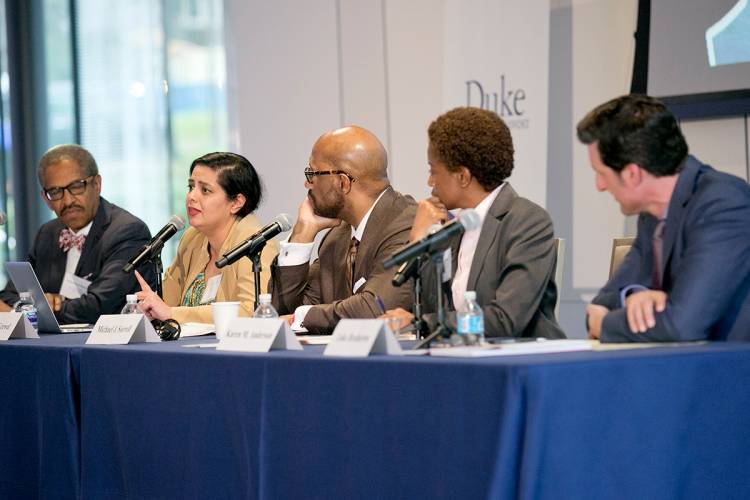How Speech and Civility Issues Test the University
Second Provost's Forum explores rights, boundaries and building community

Universities often find themselves on the hot seat when protests and controversial speakers challenge norms of free speech and civil discourse on campus. This past Thursday, Duke played host to a day-long forum convened by Provost Sally Kornbluth focusing on speech issues, “Testing the University: Speech, Freedom, and Civility on College Campuses.”
The forum drew professors, journalists and students to Penn Pavilion to consider questions such as how universities can protect free speech while fostering civility and diverse points of view. It also featured keynote speaker and New York Times columnist David Brooks, who urged students and professors to look beyond political “tribalism.”
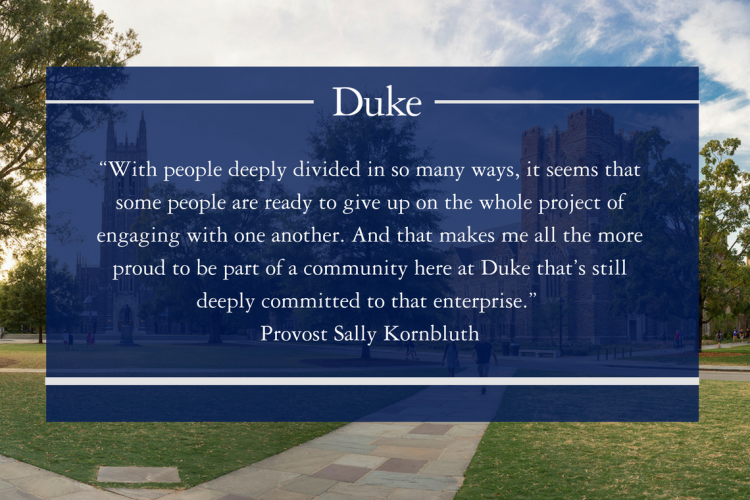
There have been issues of freedom of expression on campus “as long as there have been universities,” said Erwin Chemerinsky, the Dean of Berkeley Law, one of the panelists in the opening session. But with the advent of the internet and social media, universities are struggling to deal with new twists on these old issues.
Chermerinsky and Duke Professor Ranjana Khanna opened the forum with a review of the distinctions and differences between academic freedom and First Amendment rights and how both fit into the mission of the university.

A noted First Amendment scholar, Chemerinsky opened by emphasizing that the amendment applies only to a prohibition of government-regulated speech. Duke, as a private institution, has different obligations than the University of North Carolina. “But as part of their values, private institutions should follow the same principals.”
Chemerinsky spoke against codes limiting campus speech, saying they are inevitably too vague, are found unconstitutional and are most often used against marginalized groups they are meant to protect. At the same time, he underscored the value of civility.
Khanna responded that she too is tired of incivility. But she added that what some consider civil discourse can shut out dispossessed groups. “We should look to our history,” Khanna said. “During the sit-ins in Greensboro, these peaceful protesters were charged with incivility. Civil disobedience was met with guns by people enforcing civility. The history should give us a sense of anxiety about the ideal of civility when some people have consistently been left out of civil conversation.”
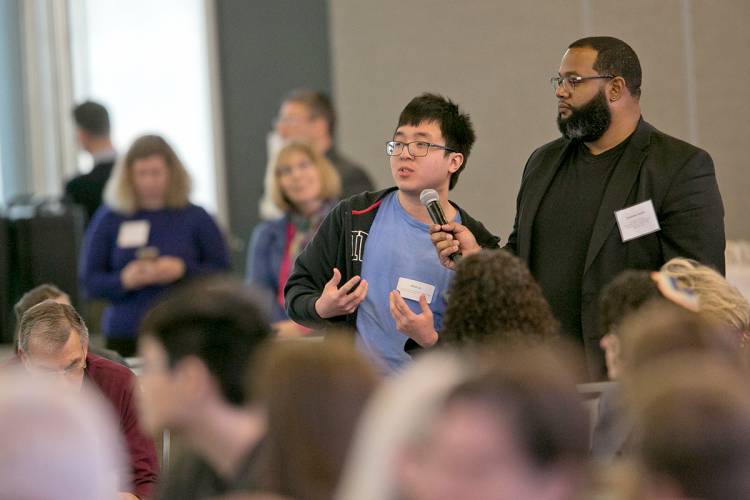
A second panel focused on civility. Duke Professor Frederick Mayer and others discussed the challenges of having meaningful communication across different worldviews.
“We actually inhabit increasingly different ‘story worlds.’ It’s as if some of us lived in Narnia and some in Middle Earth,” Mayer said.

“If you use civility as an excuse not to have unpleasant discussions with those with whom you disagree, you’re doing it wrong,” said Teresa Bejan, associate professor of political theory, University of Oxford.
New York Times columnist David Brooks engaged the audience during lunch, balancing caution against tribalism with optimism about new efforts to promote discussion across difference.
“Even in this era of surging illiberalism…hundreds of people, organizations, universities…are saying we don’t want that tribal future, we want something else. Events like this one are part of it,” Brooks said.
However, he warned that worldview is being undermined by a growing sense by people of all political perspectives that the American system isn't working for them.
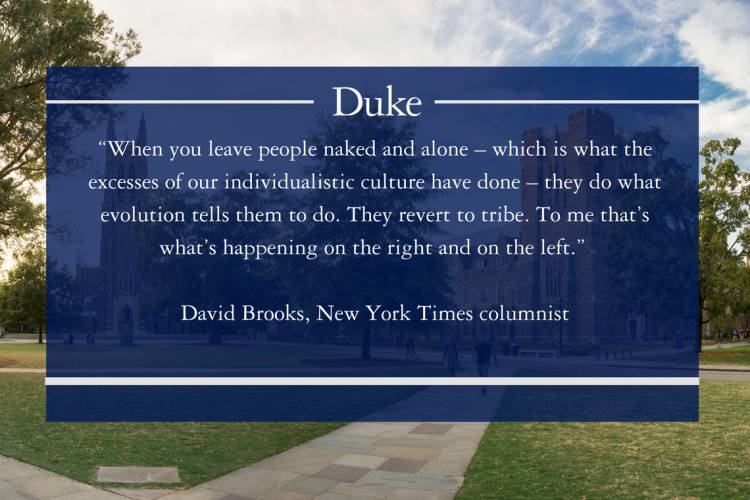
“Mistrust is the worldview," Brooks said. "That’s true on the right, often out in the country, and it’s true on the left, often on campuses, where the desire to define what’s acceptable gets narrower and narrower and people are put outside the gates.”
A closing session on assembly, protest and shared spaces started with agreement that protest is a legitimate activity on campus but ended with a challenge as to whether all political viewpoints are respected.
Michael Sorrell, president of Paul Quinn College in Dallas told the audience his student body, which includes more than 80 percent Pell Grant recipients, often has to fight to be heard. His university encourages this, but Sorrell notes that protests aren’t vehicles that universities can manage.
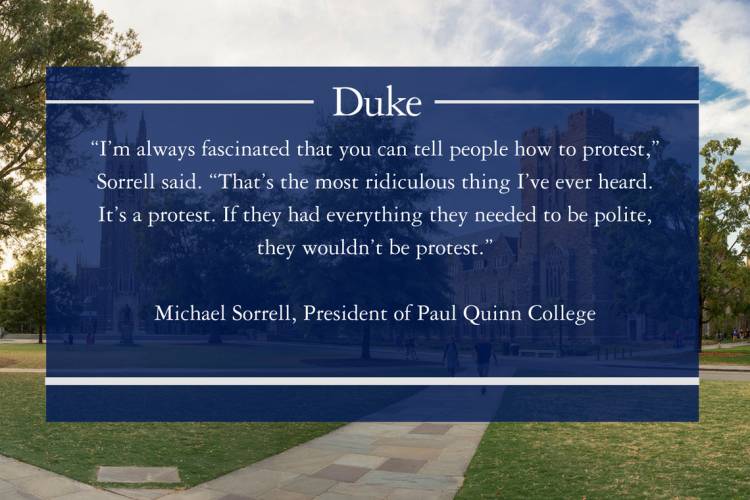
Much of the discussion focused on the difference between protests and demonstrations intended to silence speakers. Professor Zareena Grewal of Yale University said overblown concerns about the latter are being used to shut down the former.
“For me what is concerning is there are now bills in 30 states introduced to restrict protests,” Grewal said. “The attack on student protests are the canary in the coal mine. It’s alarming as to what’s happening to dissent in this country.”
However, the session ended with a challenge from Colin Duffy, a Duke student member of College Republicans, who said he is regularly shut down in campus discussions; in one case he was asked to leave a classroom. The faculty panelists said they regularly engage with students they disagreed with, but Duffy told them that when conservatives hear the language he heard in the forum “we know we should take a step back in the classroom and anything we say will be attacked.”
